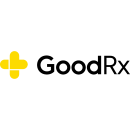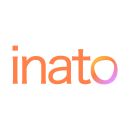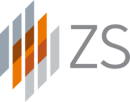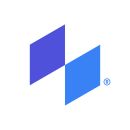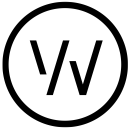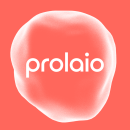Healthcare is a booming industry where new methods are applied to old problems. The healthtech sector is rife with innovators that use the latest tech capabilities to more quickly detect diseases, give patients access to the right care and in general make it easier for doctors to do their jobs.
In fact, the healthtech industry is growing so rapidly that it is expected to be valued at $1,824 billion by 2030.
Companies Making Use of Technology in Healthcare
- 23andMe
- PatientPoint
- Jabra Hearing
- Flatiron Health
- Garner Health
- Pfizer
Here are some ways healthtech companies are using new technology to improve America’s healthcare system.
Patient Services
These companies are working on improving the patient experience by facilitating interactions with doctors, making it easier to get medication and steering people toward the right resources.
Location: New York, New York
Garner Health provides a healthcare services app that gathers information from prospective patients concerning their medical needs. The app then provides a scored ranking of local doctors for them to choose from, equipping patients with insights into cost, quality of care and patient feedback. Garner Health offers its services through employer benefits packages.
Location: New York, New York
Spring Health partners with employers to give employees access to adaptable mental healthcare resources. Its solution consolidates individuals’ data and compares it to numerous other data points. Spring Health’s machine learning platform then matches people to the appropriate specialist to suit their needs.
Location: New York, New York
Chapter’s online platform enables people over 65 to connect with advisors and advocates who can help them navigate Medicare. The company’s team members offer guidance on enrollment, picking the best-suited coverage options and maximizing one’s Medicare benefits.
Location: New York, New York
Grow Therapy operates a telehealth platform that networks independent mental healthcare providers with clients in need of care. Through referral systems, admin support and credentialing services, Grow functions as a middle ground for clinicians who are between working as an employee and fully branching out into private practice. It also provides clients with badly-needed services in a high-demand industry.
Location: Austin, Texas
Findhelp works with businesses, governments and community organizations to create social care solutions. Its Marketplace program lets customers deliver goods and services, providing direct care to people seeking help. People can order things such as rides, GED materials and medically-tailored meals. Findhelp’s software equips its partners with tools for screening and closed-loop referrals, outcomes tracking, health equity insights and more.
Location: New York, New York
Pharmaceutical company Pfizer aims to deliver innovative therapies to modernize healthcare, including developing the next generation of cancer treatments. The company works to accelerate patient care by applying the latest healthcare innovations to its drug development process.
Location: New York, New York
Ro is a telehealth company giving patients access to treatment for conditions like obesity, erectile dysfunction and hair loss. Ro’s network of providers give personalized treatment recommendations, and patients can use Ro’s platform to have their prescription medications discreetly shipped to their homes for free.
Location: Fully remote
Cohere Health specializes in building technology solutions that enable intelligent, efficient prior authorization processes that are intended to result in better health outcomes for patients. The company’s offerings include automations powered by AI and machine learning that streamline workflows for accepting prior authorization requests, conducting reviews and making decisions.
Location: Bellevenue, Washington
Healthcare Management Administrators, also known as HMA, has been around since 1986, working with employers to build health plans that are affordable and customized to meet their needs. The company says its solutions for medium- and large-sized employers cover everything from telehealth services to population health strategy.
Location: New York, New York
Nourish is a telehealth platform that connects patients with dietitians covered by their insurance plans. Users start by answering questions about themselves and providing their insurance information and then can arrange a virtual appointment with a dietitian that matches their needs so they can undergo a comprehensive nutrition assessment to establish their health goals and care plan. Patients that work with Nourish see outcomes like decreased cholesterol and improvements in their overall mental and physical health.
Location: New York, New York
Healthee’s technology is designed to help employees navigate their healthcare benefits options. Its app comes with AI-powered features like a virtual assistant known as Zoe that provides users with information about their coverage options. The platform gives HR teams the tools to improve health literacy throughout their organizations and boost employee satisfaction.
Location: Santa Monica, California
GoodRx runs a digital healthcare marketplace that connects consumers with cost-reducing resources for prescription medication, lab tests and doctor visits. Its tech facilitates processes that cut costs, like real-time benefits checks that allow cualstomers to see what coverage they have for specific services and medications. GoodRx also serves healthcare providers, like patient experience software and clinical management tools.
Location: New York, New York
Zocdoc offers a digital healthcare marketplace that enables users to connect with medical providers and helps practices attract new patients. As patients search the database through Zocdoc’s website or mobile app, they can see a provider’s specialty, location, reviews and appointment availability, as well as what insurance they accept.
Location: Fully remote
Jabra Hearing makes medical-grade over-the-counter hearing aids and enhancements that are engineered to support improved hearing for patients who are hard of hearing. Its Enhance product, a hearing enhancement earbud, uses recent hearing healthcare tech but is priced at about half the national average cost for similar products.
Location: New York, New York
Firsthand uses technology to connect with and serve individuals living with serious mental illness. For example, the company uses data science to identify the individuals in need of its medical and social support services. Firsthand also provides its team members with mobile-first tools that give them the capabilities to serve their target population on a broader scale. The company says its tech-enabled solutions have resulted in a 70 percent reach rate, allowing firsthand to make contact with individuals that other groups have been unable to engage in the past.
Location: New York, New York
Cedar’s technology is designed to improve the healthcare billing process for providers and payers. It offers a platform that can give patients cost estimates ahead of an appointment, provide bills that clarify any differences compared to the estimate and serve as a single place for patients to resolve their bills with their benefits provider and submit payments. The company says healthcare organizations that implement its solutions have been able to collect payments faster while also enhancing patient engagement.
Location: Cincinnati, Ohio
Healthtech company PatientPoint makes digital patient engagement platforms that are designed to improve communication between doctors and patients. Its products for patient acquisition, in-office visits, hospital engagement and remote care bring digital health education content to the patient experience via screens in waiting rooms, interactive anatomical models and whiteboards in exam rooms and info hubs for support staff. The platforms also enable doctors to “prescribe” reading for their patients to take home with them, and to remotely monitor patients. PatientPoint says its solutions have been deployed across 38,000 physician offices.
Location: Chicago, Illinois
Kalderos’ platform unifies data from various sources to streamline drug discount program compliance, with the goal of preventing revenue losses as a result of noncompliance and enabling the healthcare system to refocus its efforts on better serving patients. The company says its technology has been used to identify more than $1 billion in noncompliance.
Location: New York, New York
Marble Health focuses on using technology and partnering with schools and families to make mental healthcare. Within four days, Marble Health can set a student up with a virtual appointment through its platform, allowing them to connect with a licensed therapist. The company accepts major insurances, including Medicaid, to ensure its care options are affordable.
Services for Doctors and Researchers
Healthtech is about more than enhanced patient care; it’s also about giving doctors and researchers the tools they need to excel. From big picture projects (like trying to find a cure for cancer) to more detail-oriented ones (like finding new ways to train doctors), these companies are helping the people who help the patients.
Location: New York, New York
Dandy offers digital dentistry solutions with a range of services and lab products to help dentists streamline their operations. This can include tracking lab work, case management and digital impressions. The company aims to transform dental practices nationwide.
Location: Boston, Massachusetts
Laudio offers a platform to help frontline leaders in healthcare recognize and support their team members. The company works to foster productive team engagement and encourages leaders to intervene early to solve any team issues. Laudio’s goal is to help frontline leaders build high-performing teams.
Location: Indianapolis, Indiana
Greenlight Guru makes SaaS products for medtech companies. Its quality management systems, product development overviews and clinical electronic data capture help clients modernize and optimize operations. Greenlight Guru’s tools also guide companies through regulatory processes of bringing SaMD (Software as Medical Device) products to market.
Location: New York, New York
Headway is building a national virtual network of therapists who accept insurance, rewiring the mental healthcare system for access and affordability. Its platform helps practitioners expand their practices and enables individuals to find affordable care. Founded in 2019, Headway has raised funding from venture capitalists and healthcare entrepreneurs alike.
Location: Framingham, Massachusetts
Definitive Healthcare offers software for business intelligence and data in the healthcare industry. Its SaaS platform is designed for healthcare companies that use data to guide decisions about what markets to enter and how to strategically access them. It delivers detailed information and financial data about existing healthcare organizations and providers.
Location: Fully Remote
Inato takes the complex task of recruiting and screening patients for pharmaceutical clinical trials and streamlines it with organizational software. It also facilitates site selection and performance tracking, turning research and development into an optimized, efficient system. By matching appropriate research opportunities with community-based research sites, it is able to increase access to trial drugs and increase trial enrollment.
Location: New York, New York
Formation Bio is a biotech research and development company that has taken a novel approach to the process of bringing new pharmaceutical products to market. By divesting from human work wherever possible and instead deploying AI agents, data stacks and large language models, it turns every stage of drug development into an optimized, tech-enabled protocol.
Location: Santa Monica, California
SimplePractice equips private health and wellness practices with a cloud-based, HIPAA-compliant platform that assists with client intake, integrated billing, online booking, telehealth services and other functions. More than 185,000 professionals leverage its solution to gain better control over their businesses, grow as entrepreneurs and provide effective service to clients.
Location: Santa Monica, California
TigerConnect’s suite of digital tools are designed to improve communication, collaboration and productivity in the healthcare industry. Its offerings include physician scheduling software that streamlines shift and on-call planning and a patient engagement platform that enables secure communications over video, voice or text. TigerConnects says its solutions support thousands of healthcare organizations and care team members in achieving better patient outcomes.
Location: Fully remote
Arcadia specializes in data analytics for healthcare organizations. Its cloud-based data platform gives healthcare providers, healthcare payers and state and local government agencies access to insights that inform their decision making. Clients report that Arcadia’s solutions have helped them quickly deliver quality, proactive care to their patients.
Location: Evanston, Illinois
ZS is a management consultancy that serves a range of industries, but maintains a focus on healthcare. Its health plan strategy services include solutions like growth analytics for boosting Medicare Advantage plan performance, for example. The company also has expertise in areas such as launching digital health products and integrating solutions to speed up research and development processes for new therapies.
Location: New York, New York
Flatiron Health uses technology to advance oncdology, the diagnosis, prevention and treatment of cancer. Its database of 2.2 million active patient records makes it an asset for oncology research. It also offers a suite of OncoCloud programs that oncologists can use, including Electronic Health Records (EHR) management to clinical trial data. Flatiron Health works with more than 15 of the top therapeutic oncology companies to fight cancer. It also recently renewed its partnership with the FDA's Information Exchange and Data Transformation (INFORMED) program to provide cancer research.
Personal Genetic Testing
Thanks to advancements in technology and biology, researchers and physicians are now able to link certain genes to various human traits and conditions. With the onset of consumer DNA kits and personal genetic testing, that information is becoming readily available to everyday folks. Want to know if you’re at risk for a degenerative disease like Alzheimer's, or if you’ll pass a certain trait to your children? The answer may lie in your DNA.
Location: Mountain View, California
23andMe makes consumer DNA kits that people can use for home genome sequencing. Spit into a tube, mail it off and 23andMe will send you information based on DNA analysis. Learn things like where your ancestors came from, whether you’re a carrier of certain heritable diseases or even if you’re likely to go bald. More than 5 million people have used 23andMe, with 80 percent opting-in to participate in research.
Detection and Diagnostics
The sooner you detect a disease, the sooner you can treat it. New technology gives doctors a clearer picture of patients’ issues, which prompts more accurate diagnoses. Just as German physicist Wilhelm Conrad Roentgen’s X-rays revolutionized treatment of broken bones, companies are using technology to pinpoint health problems that are far less visible.
Location: Boston, Massachusetts
WHOOP develops wearable technology that enables users to track their sleep, fitness and recovery constantly. The company’s data-driven platform provides insights to help users improve their health and lifestyles based on metrics like heart rate, blood oxygen and skin temperature.
Location: Menlo Park, California
GRAIL builds technology for early cancer detection. Its Galleri test is a multi-cancer early detection, or MCED, test that analyzes patients’ blood for the presence of a signal that’s indicative of more than four dozen types of cancer. Used in conjunction with other routine screening processes, GRAIL’s technology is meant to increase the likelihood of diagnosing cancer in the early stages and improve survival rates.
Location: Santa Barbara, California
Artera offers SaaS for healthcare systems and federal agencies to more easily communicate with medical patients. Its solutions can integrate across its clients’ EHRs, tech stack and third party vendors. The company’s service can be used to communicate with patients through their preferred channel of webchat, email, texting or IVR.
Other Technology in Healthcare Use Cases
Location: Boston, Massachusetts
AcuityMD is a software company that supports the medical technology industry. Its platform is equipped with tools to help sales teams build and maintain targeted pipelines and improve their overall productivity. For example, AcuityMD’s Care Journeys solution allows users to incorporate patient opportunity insights into their sales pitches.
Location: New York, New York
Click Therapeutics builds software applications known as digital therapeutics that are intended to be prescribed as medical treatment. The company’s products for smoking cessation and treating major depressive disorder have gone through clinical trials and FDA authorization and are available to patients. Click Therapeutics also has treatments in development for migraine, schizophrenia and opioid use disorder.
Location: Denver, Colorado
Gusto provides software solutions for HR teams. Its products cover tasks including collecting employee feedback, benefits administration, hiring, onboarding and payroll. The company supports healthcare benefits throughout all 50 U.S. states and Washington D.C.
Location: Conshohocken, Pennsylvania
Cencora is a pharmaceutical solutions provider that serves hospitals, pharmacies and individual medical practices, along with veterinary healthcare providers. Its services include wholesale drug sourcing and distribution, pharmaceutical research capabilities and commercialization and product launch support.
Location: South San Francisco, California
AKASA uses generative AI to power its healthcare revenue cycle solutions. For example, the AKASA CDI Optimizer offering is designed to act as a virtual assistant that helps health systems improve documentation quality and accuracy, reduce compliance risk and identify missed revenue opportunities.
Location: New York, New York
Stepful provides students with affordable, accessible healthcare education through virtual courses, with an emphasis on supporting learners from underserved communities. It aims to help close the growing shortage of healthcare workers. Headquartered in New York City, the company’s alumni now work for major employers such as CVS, NewYork-Presbyterian and Walgreens.
Location: Chicago, Illinois
Prolaio is a company that developed a platform for continuous heart monitoring, which was acquired by Kardigan Bio in 2025. The company's technology uses a combination of intelligent software and connected devices, such as smartwatches, ECG patches and blood pressure monitors, to collect real-world cardiac data. This approach allows patients to have their heart health tracked continuously from home, moving beyond periodic checkups. The platform's software analyzes the gathered information using pattern recognition to help medical teams monitor patient progress, detect early warning signs and make timely adjustments to treatment.
Location: Los Angeles, California
Axle Health offers scheduling and workforce management solutions for home healthcare organizations. It provides tools that feature AI-enabled scheduling capabilities, clinician location tracking and route optimization. The company aims to automate the operational burdens of scheduling and dispatching home healthcare workers.
Location: New York, New York
Sailor Health is a technology company building a platform dedicated to senior mental health. It aims to address the critical issue that older adults have the highest rates of suicide and loneliness but receive the least mental healthcare. The company’s services combine artificial intelligence with therapist care, providing personalized therapy for issues like anxiety and depression.













